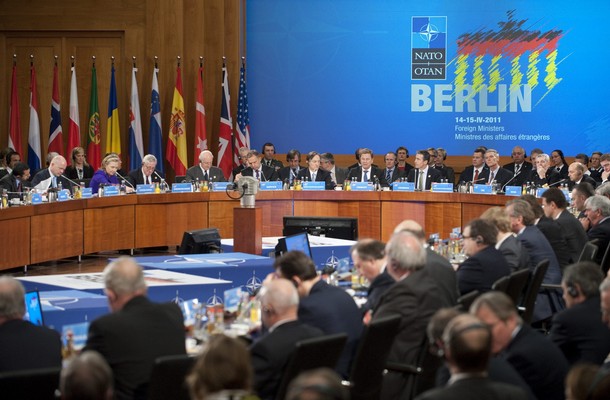
From François Heisbourg, the International Herald Tribune: [T]his small and successful war will have major strategic consequences for both NATO and the European Union, as a result of President Barack Obama’s decision to “lead from behind,” and Chancellor Angela Merkel’s refusal to get involved. . . .
The positive consequences were that the French president and the British prime minister got the opportunity to lead a successful coalition, and that the war was not conducted along the familiar American lines of “overwhelming force” or “shock and awe. . . ."
At the same time, the leading-from-behind policy will have negative consequences for allied defense in general and NATO in particular. . . .
If “leading from behind” becomes the rule rather than the exception — a plausible assumption given the current inward-looking mood in the United States and cuts in defense spending — European force planners will have to invest in some of these areas. Given the debt crisis, such spending will come at the expense of other defense investments.
More generally, France and Britain (which account for some 60 percent of Europe’s military purchases) will presumably put a higher value on their ability to manage close-to-home operations, like the Libyan war, over playing second fiddle in far-from-home operations, like the one in Afghanistan.
The bottom line will presumably be that the Europeans will focus more on their near-abroad, with NATO becoming more regional and less global. . . .
Without NATO’s enabling machinery and the formidable American capabilities on which it rests, the war would have been a much-more fraught affair. But that is damning with faint praise. NATO as a political organization is a casualty of the Libyan war.
François Heisbourg is special adviser at the Paris-based Foundation for Strategic Research. (photo: Reuters)
Image: reuters%204%2014%20NATO%20FORMIN%20Berlin.jpg
